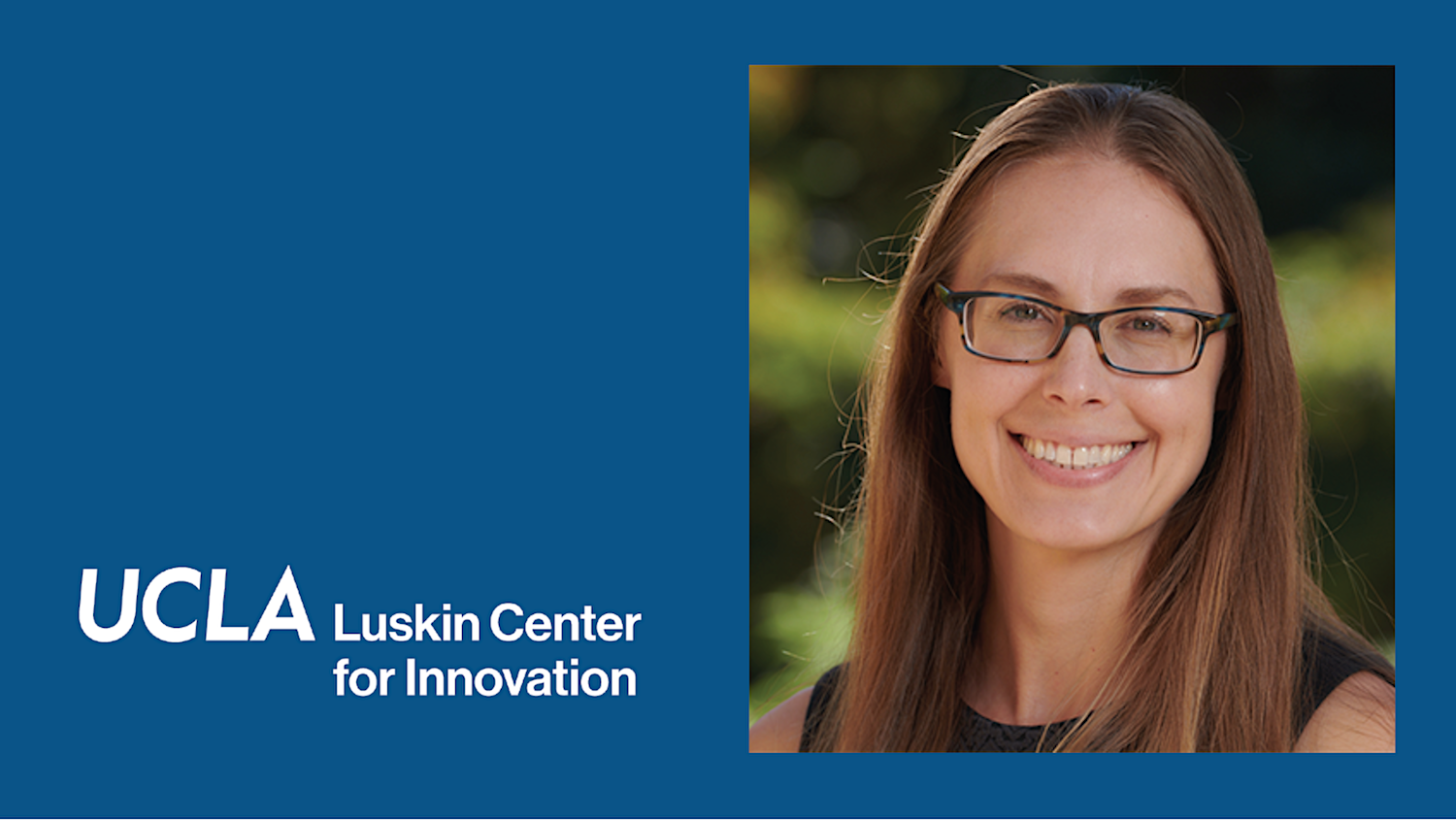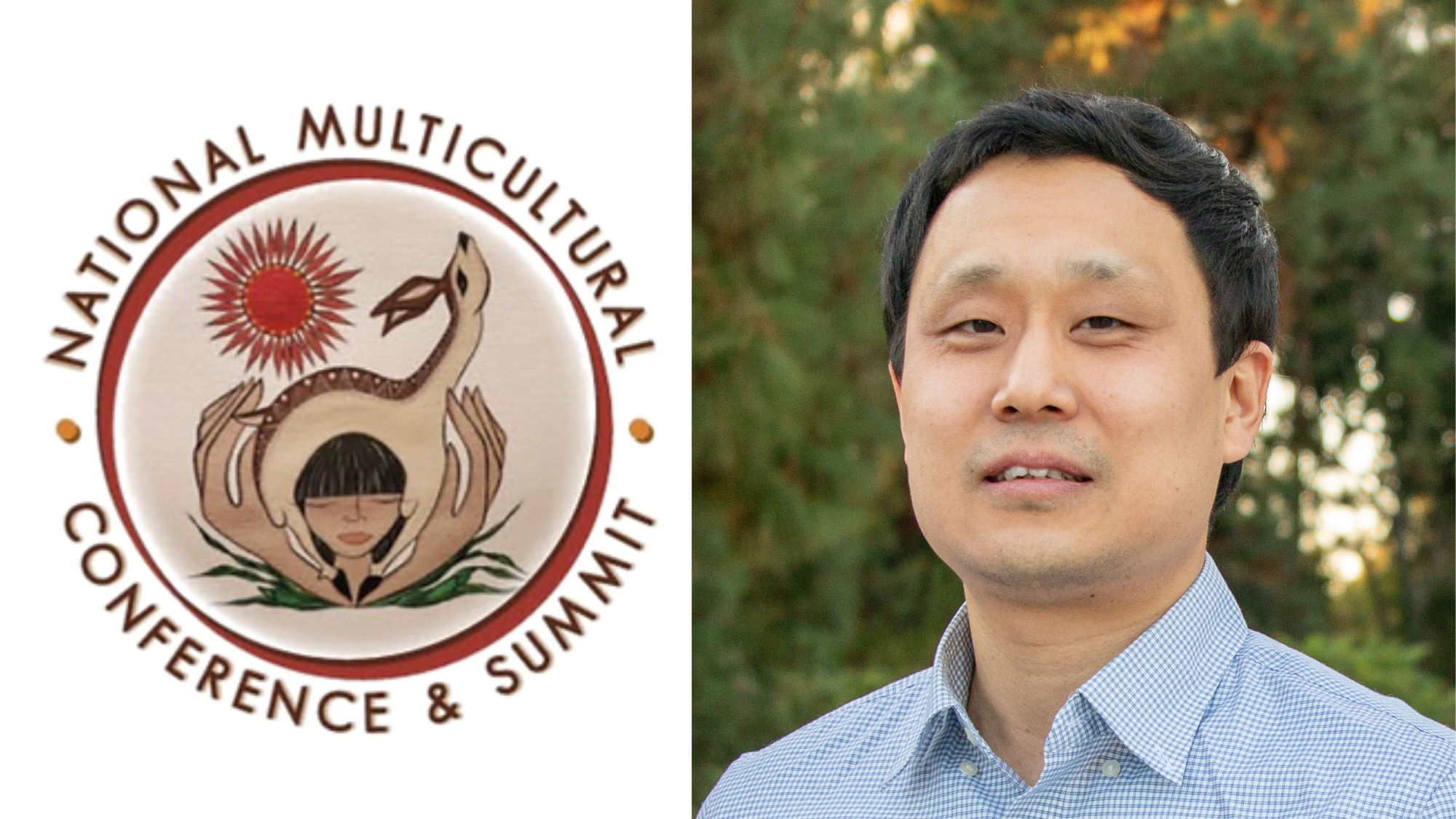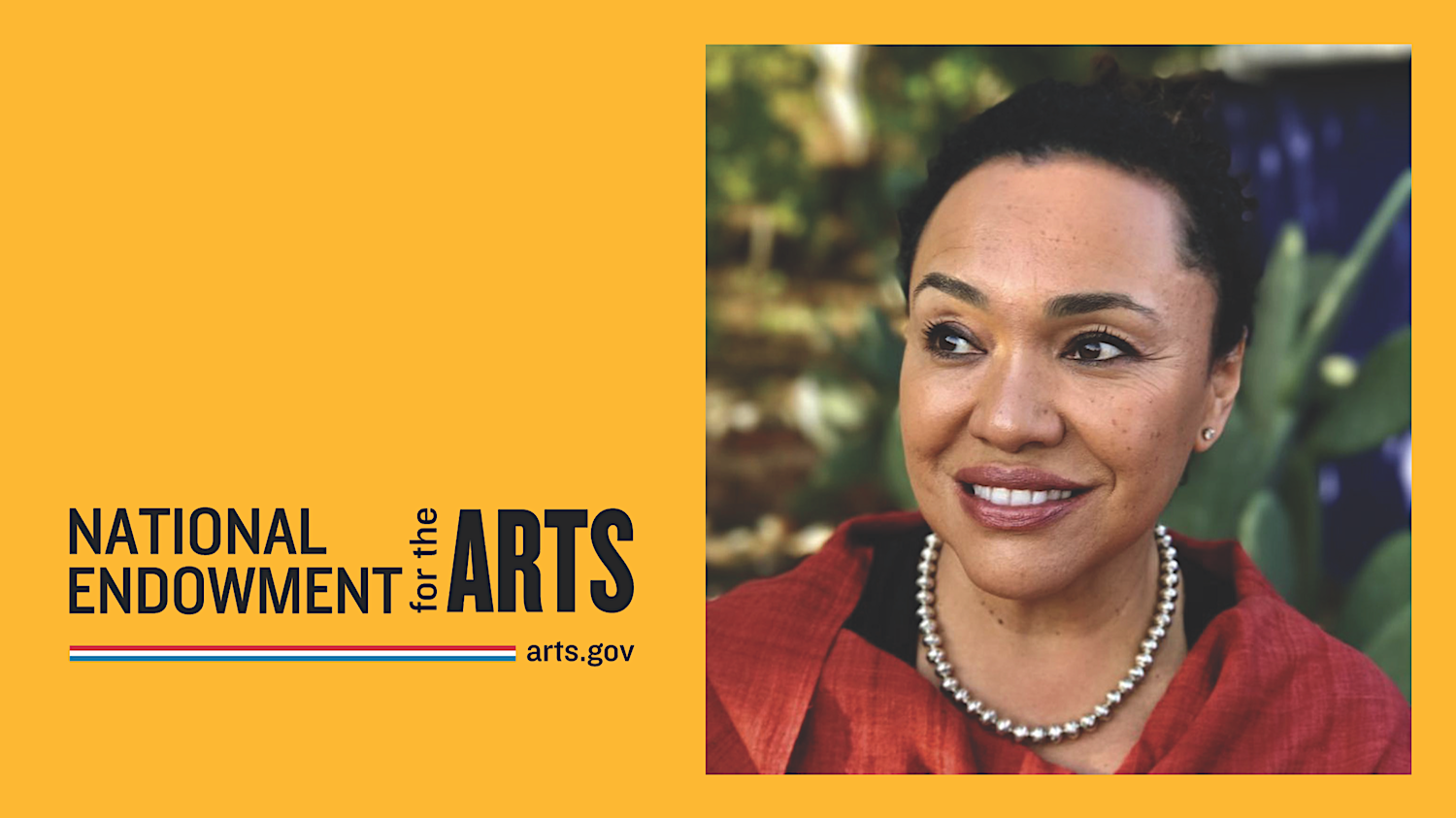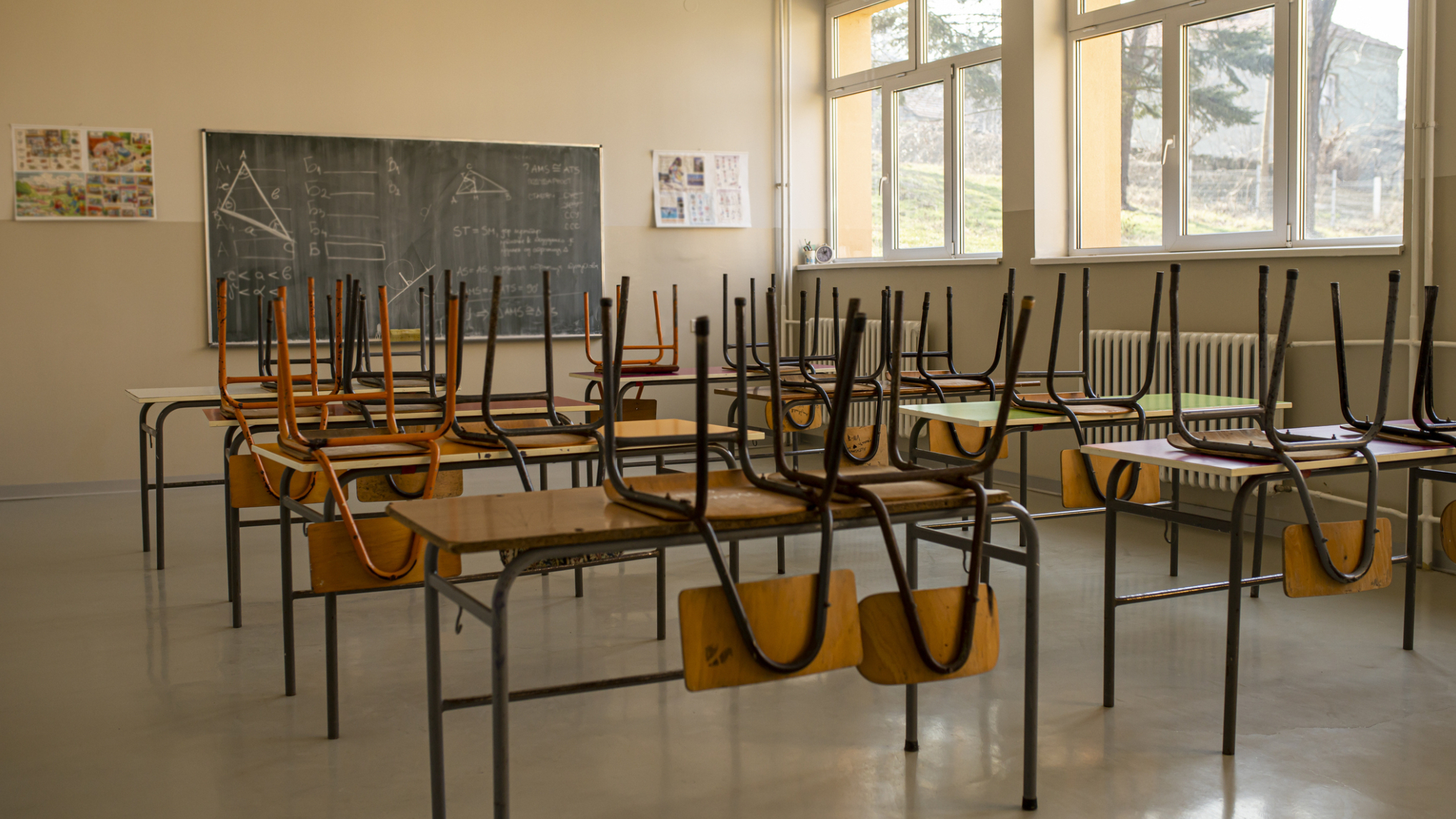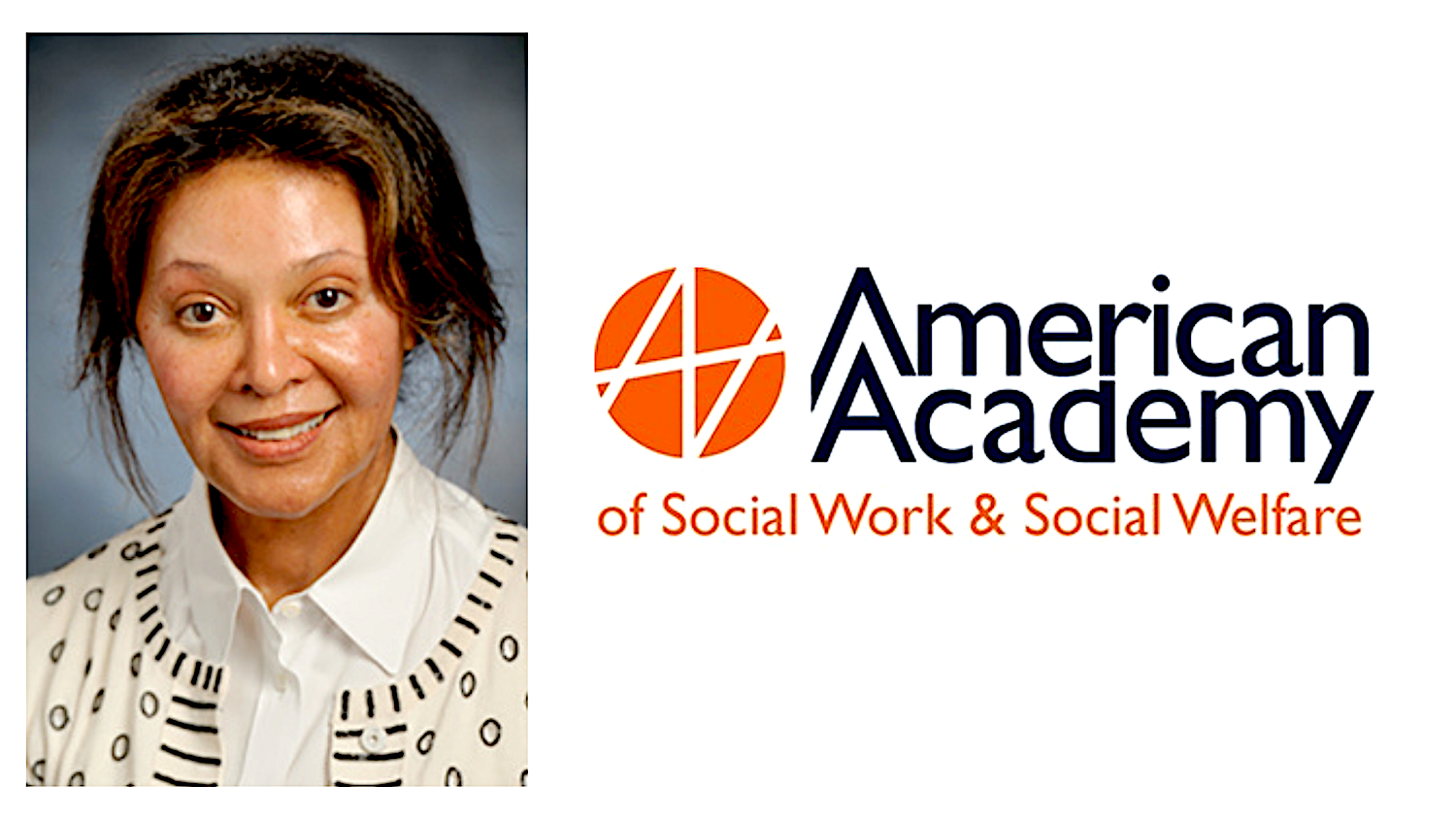Callahan Named Co-Executive Director of Luskin Center for Innovation
Colleen Callahan MA UP ’10 has been appointed as co-executive director of the UCLA Luskin Center for Innovation. She served as the founding deputy director for 12 years, playing an integral part in building the research center from the ground up. The new role reflects Callahan’s experience, the growing trajectory of the center and its goals for the future. In this expanded position, Callahan plans to increase strategic engagement and partnership initiatives to maximize the center’s impact on public policies and other environmental innovations for the health of people and the planet. “It’s both an exciting and daunting time to step into this role,” Callahan said. “Bold action on the climate crisis is urgently needed. I’m humbled to have this opportunity to expand the center’s collaborations with frontline communities, policymakers and others to help advance solutions.” With 18 years of experience in social entrepreneurship, environmental policy and urban planning, Callahan will amplify the work of the Luskin Center for Innovation’s 20 faculty affiliates, 12 full-time staff, and more than 25 part-time researchers and consultants. The new executive director position will enhance the center’s leadership structure, with Greg Pierce sharing the executive leadership role with Callahan. In addition, V. Kelly Turner and Pierce, faculty in the department of urban planning, are leading the center’s research programs as co-directors. Together, they bring a shared commitment and strong capacity to advance evidence-based and equitable environmental policies. Rounding out the team will be a new faculty director in the coming year.
Faculty Reported Among Top 2% in Scholarly Citations
Eighteen faculty members affiliated with UCLA Luskin are included in a listing of the top 2% for scholarly citations worldwide in their respective fields as determined by an annual study co-produced by Stanford University researchers. The 2021 report is a publicly available database that identifies more than 100,000 top researchers and includes updates through citation year 2020. The lists and explanations of study methodology can be found on Elsevier BV, and an article about the study was published by PLOS Biology. Separate data sets are available for career-long and single-year impact. The researchers are classified into 22 scientific fields and 176 subfields, with field- and subfield-specific percentiles provided for all researchers who have published at least five papers. The following current and past scholars with a UCLA Luskin connection met the study’s criteria to be included among the most-cited scholars:
Randall Crane
Yeheskel Hasenfeld (deceased)
Duncan Lindsey
Martin Wachs (deceased)
Global Perspectives Honored as Best New Journal
Global Perspectives, a transdisciplinary online journal edited by Adjunct Professor of Social Welfare Helmut Anheier, was named best new journal for 2021 by the Council of Editors of Learned Journals. The council, made up of academic journal editors across all disciplines, praised the breadth and depth of the journal and its innovative structure. “The journal’s commitment to a new practice of the disciplines in the social sciences, one that refuses to replicate some of the old power structures of a century ago, is borne out in the innovative structure of an emerging scholars forum, where postdocs and assistant professors both contribute and participate in peer review of others,” the group said. “With an impressively diverse editorial board, and a healthy number of section editors, each with their own advisory board, this journal’s structure seems to offer a balance of breadth and depth worthy of the name.” Published by the University of California Press, Global Perspectives seeks to advance social science research and debates in a globalizing world. Anheier, who is also a senior professor of sociology and past president of the Hertie School in Berlin, said the award is “further encouragement to the novel approach of the journal to focus on high-quality academic contributions that do not fit into conventional disciplinary and national boundaries. Being recognized as such and so prominently by our peers in scholarly publishing is indeed a great honor.” The award was announced Jan. 8 at the annual meeting of the Modern Language Association, the U.S. professional association for scholars of language and literature.
Keum Wins Award for Multicultural Psychology Research
Assistant Professor of Social Welfare Brian Keum has received the 2022 National Multicultural Conference and Summit Rising Star Award for his significant contributions to the field of multicultural psychology. Awarded biennially, the prestigious Rising Star Award honors the achievements of early-career psychologists in multicultural research, teaching, advocacy, policy and clinical care. As a social-justice-oriented scientist-practitioner, Keum draws from his clinical experience to conduct research that improves mental health practice and informs advocacy for diverse communities. He serves as director of the Health, Identities, Inequality and Technology Lab at UCLA Luskin, which studies health and mental health disparities among marginalized individuals and communities using intersectional, contemporary and digitally relevant approaches. His research aims to address discrimination and oppression as social determinants of these disparities. Keum has also explored the intersection of online racism and sexism on the mental health and behavioral outcomes of youth and adults of color, as well as how body image and gendered racism affect the mental health of Asian American males. Additionally, he provides therapy to a diverse community and college-based clientele. Keum will be recognized at this week’s National Multicultural Conference and Summit. The organization was founded in 1999 to address a pressing concern in the United States — the growing mental health needs of historically marginalized groups and disenfranchised individuals. — Zoe Day
Urban Planning Alumna Leads National Endowment for the Arts
Urban Planning alumna Maria Rosario Jackson PhD ’96 has been confirmed as chair of the National Endowment for the Arts, becoming the first African American and Mexican American woman to lead the federal agency. “The arts are critical to our well-being, to robust economies and to healthy communities where all people can thrive,” said Jackson, a professor at Arizona State University who has served on the National Council on the Arts since 2013. For more than 25 years, Jackson’s work has focused on understanding and elevating arts, culture and design as critical elements of strong communities. She has served as an advisor on philanthropic programs and investments at national, regional and local foundations, including the Los Angeles County Cultural Equity and Inclusion Initiative and the Smithsonian Center for Folklife and Cultural Heritage. She serves on the board of directors of the Performing Arts Center of Los Angeles County, among other organizations, and her work appears in a wide range of professional and academic publications. She also taught a UCLA course on arts, culture and community revitalization. Jackson grew up in South Los Angeles and credits her parents with instilling a love of the arts in her family. “Our art, culture and creativity are some of our country’s most valuable resources,” she said. “They are evidence of our humanity, our ability to learn from our examined experience, and our ability to imagine and innovate.” President Joe Biden nominated Jackson to the NEA post in October, during National Arts and Humanities Month; her appointment was confirmed by the U.S. Senate on Dec. 18.
Reber Highlights Educational Disparities in New Publication
Associate Professor of Public Policy Sarah Reber collaborated with Nora Gordon of Georgetown University on “Addressing Inequities in the US K-12 Education System,” a chapter of the Aspen Economic Strategy Group publication “Rebuilding the Post-Pandemic Economy.” Reber and Gordon explore disparities in educational outcomes by race, ethnicity, economic disadvantage and disability. “American public schools do not successfully prepare all students for careers or college,” they wrote. “Despite decades of federal and state policy reforms and major philanthropic investments, there are still glaring deficiencies and inequities across the US K-12 education system.” Reducing inequities in American education “will require a renewed focus on the ‘fundamentals’ of the K-12 system, including an emphasis on how staff are trained, recruited, retained and supported in their work; the effective design of curriculum; and the maintenance of safe and healthy school buildings,” they wrote. In the chapter, Reber and Gordon highlight three principles to guide future efforts to improve K-12 schools: First, they recommend focusing on the key elements of how to effectively deliver educational content to all students, including class size, access to necessary technologies and supplies, and a strong core curriculum. Next, they suggest increasing the emphasis on vulnerable students, including students with disabilities, English learners and American Indian students. Finally, they note that school leaders should encourage the thoughtful adoption of strategies that have been shown to work. “We should learn from past efforts to improve the impact of educational policy and philanthropy going forward, with careful attention to strengthening the research base,” they concluded.
Jackson Selected as American Academy of Social Work and Social Welfare Fellow
Professor Emerita of Social Welfare Aurora Jackson was elected as a 2022 fellow by the American Academy of Social Work and Social Welfare. The academy is a prestigious society of distinguished scholars and practitioners dedicated to achieving excellence in the field of social work and social welfare through high-impact work that advances social good. The fellowship program recognizes and celebrates outstanding social work and social welfare research, scholarship and practice. Jackson’s scholarship examines the interrelationships among economic hardship, parental psychological well-being, parenting in the home environment, and child developmental outcomes in families headed by low-income, single-parent mothers with young children. When she is formally inducted with 15 other fellows in January 2022, Jackson will become the second woman from UCLA to join the academy, following the induction of Social Welfare Chair Laura Abrams in 2020. Academy fellows are nominated confidentially, then confirmed by a supermajority of current academy members. “Being a member of the academy is the highest honor the profession can bestow on a scholar,” said Social Welfare Professor Ron Avi Astor, who was inducted into the academy in 2017. Jackson will contribute to the growing list of UCLA Luskin Social Welfare scholars who have been inducted as academy fellows. In addition to Abrams and Astor, they include Distinguished Professor Emeritus Stuart A. Kirk (2010), Professor Emeritus James Lubben (2011), Professor Emeritus Robert Schilling (2011) and the late Professor Yeheskel “Zeke” Hasenfeld (2013). — Zoe Day
